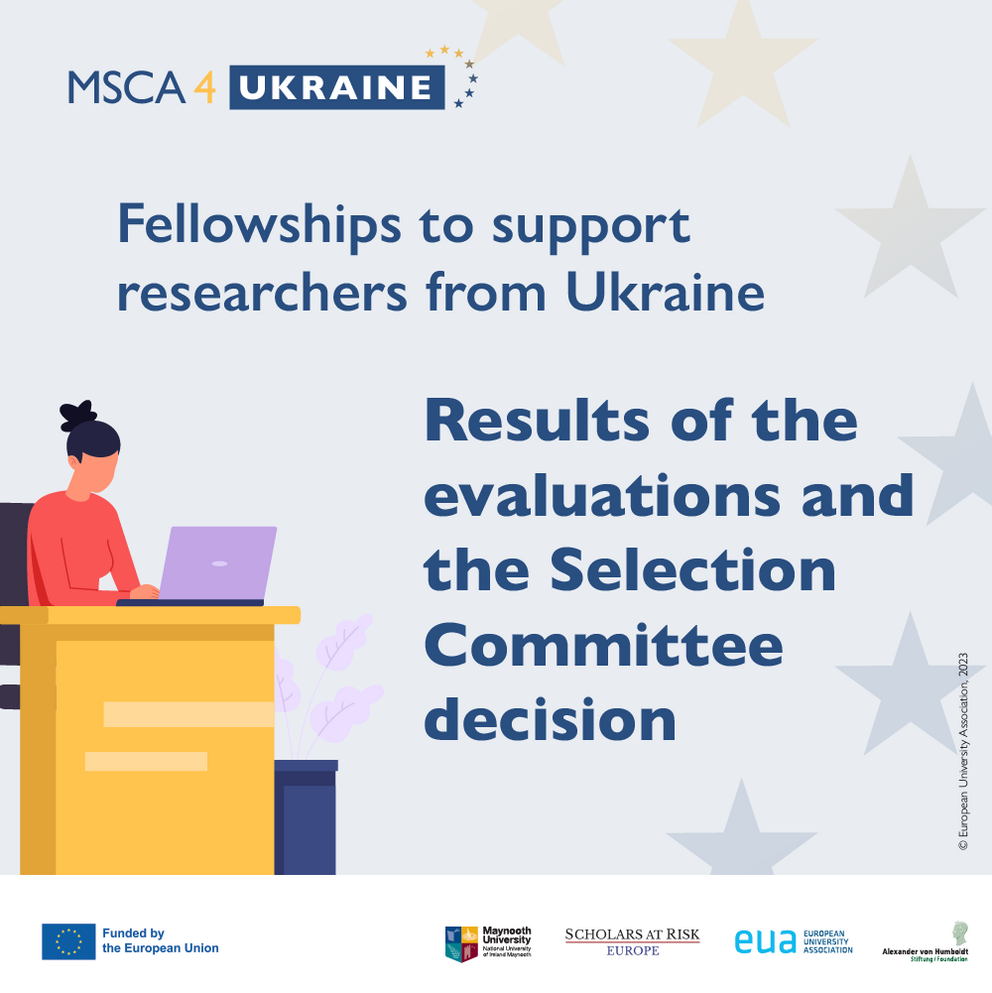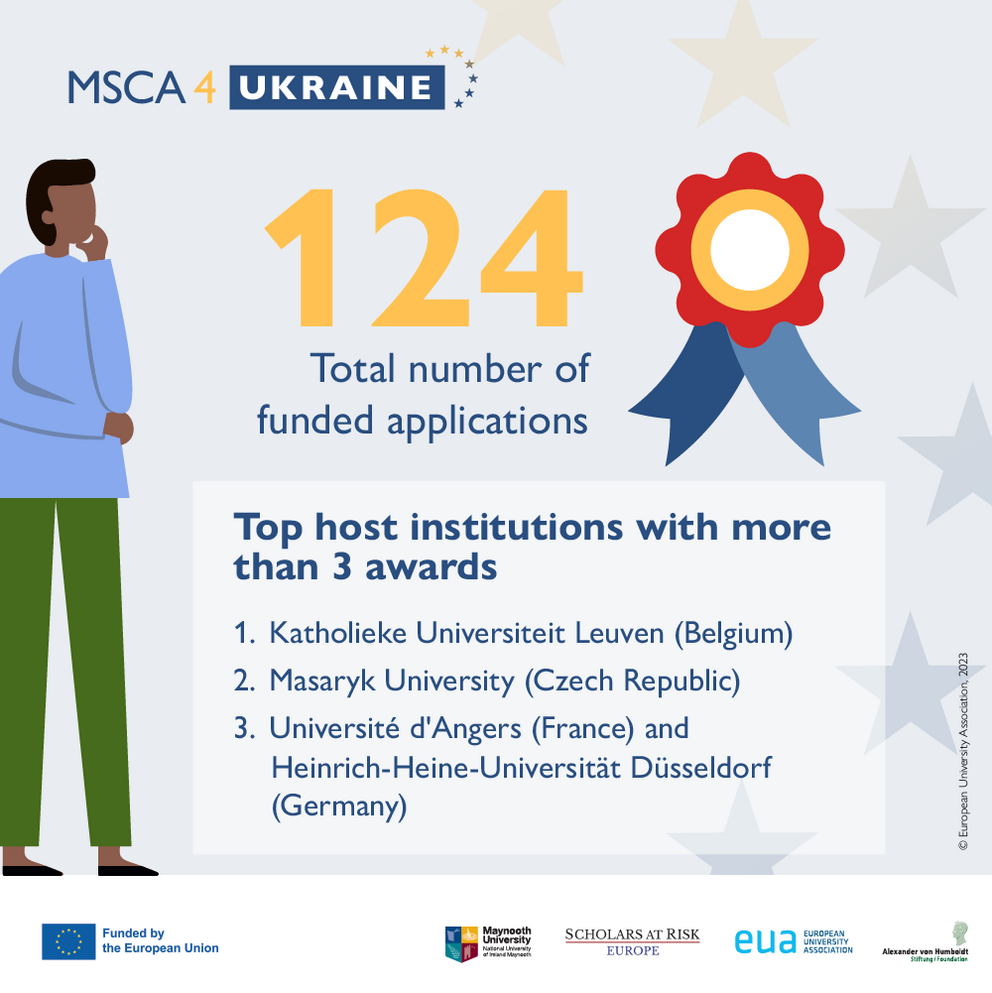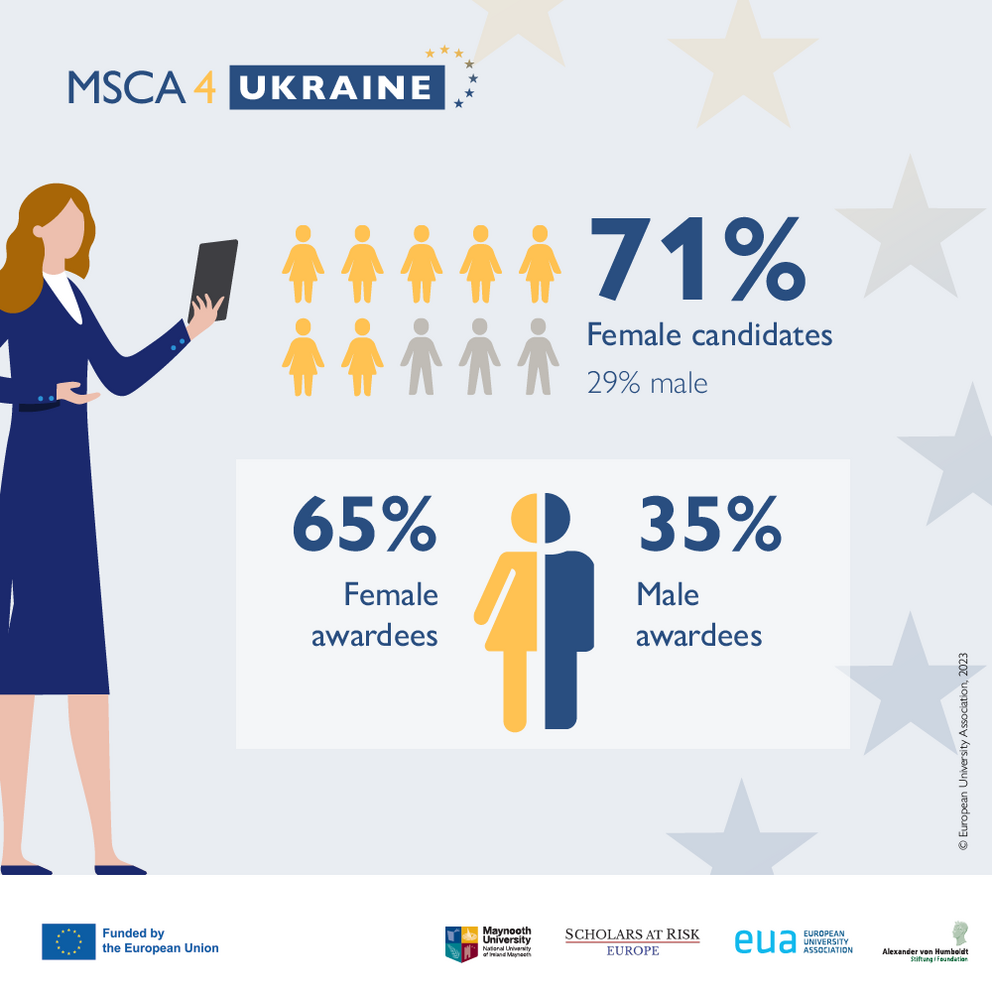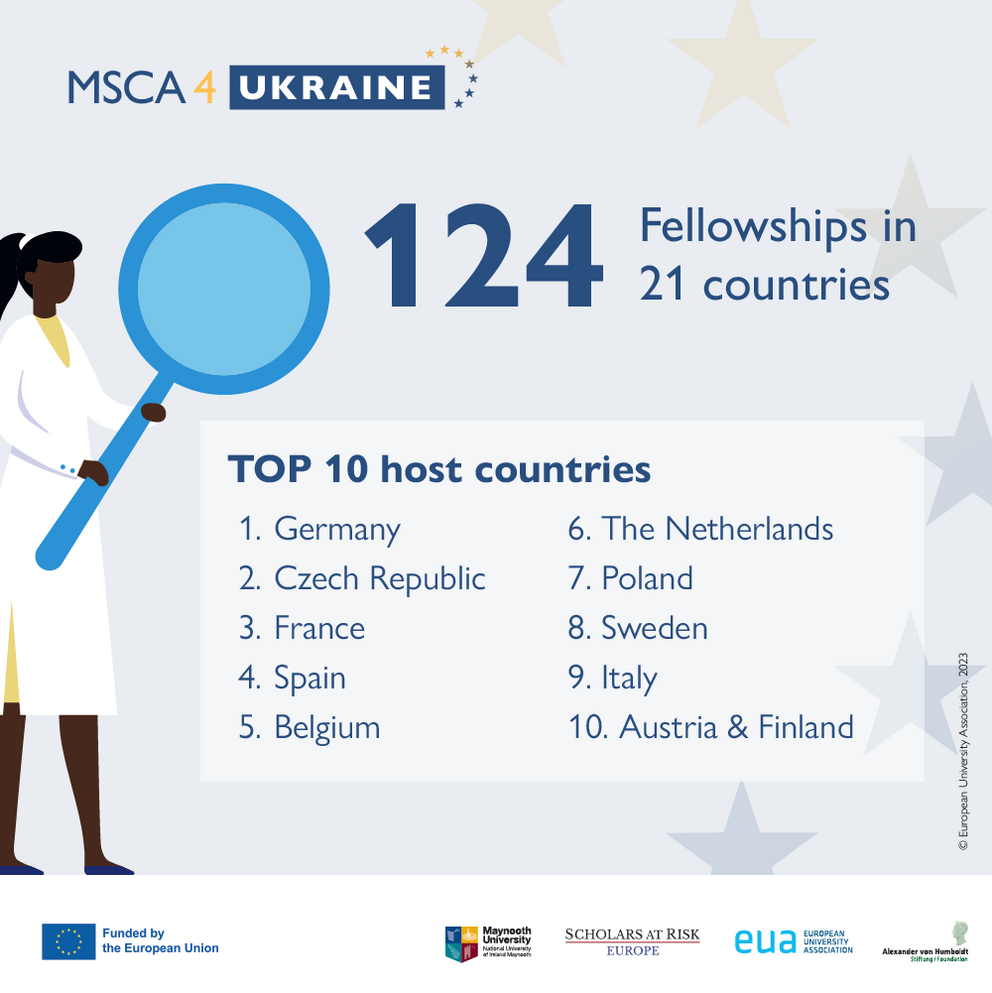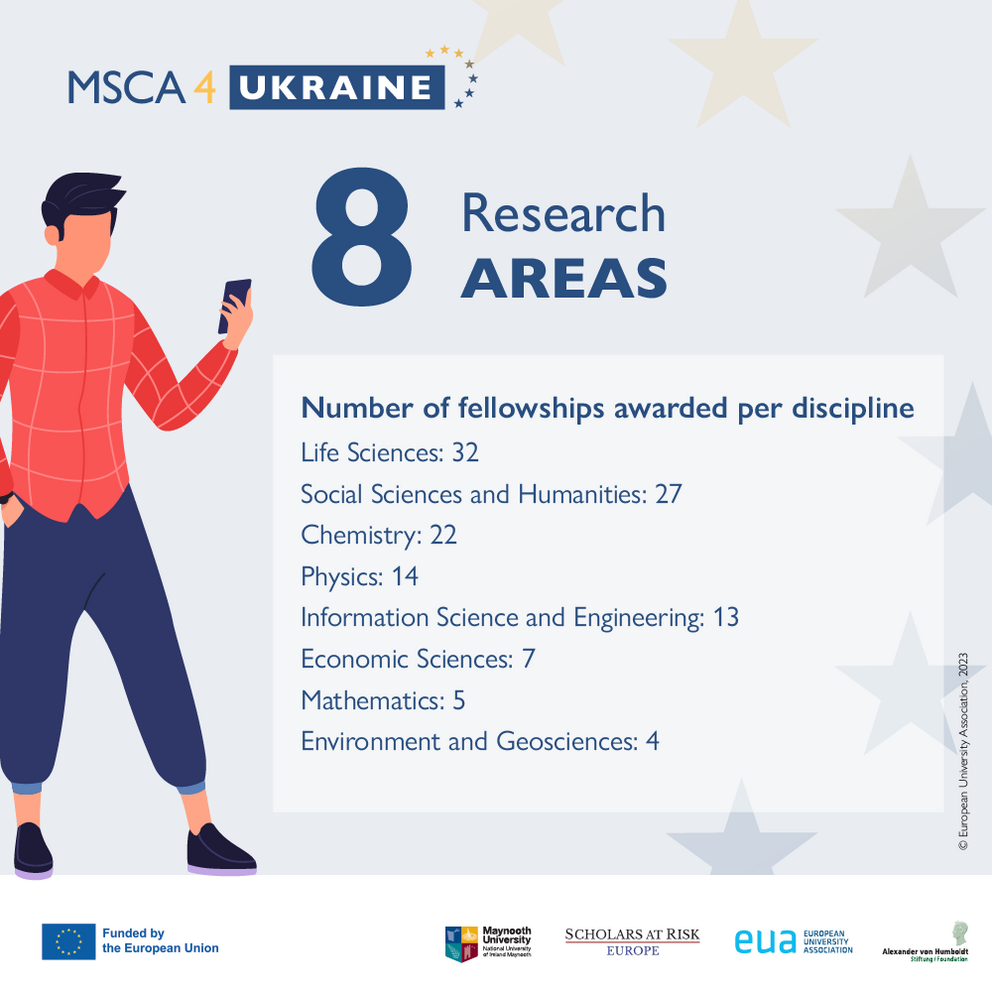
Contact
Press, Communications and Marketing
Tel.: +49 228 833-144
Fax: +49 228 833-441
presse[at]avh.de
The Ukrainian fellows haven been selected for the Europe-wide MSCA4Ukraine assistance programme which is being conducted by the Alexander von Humboldt Foundation together with Scholars at Risk Europe as the lead partner and with the European University Association (EUA).
Exactly one year after the launch of the Russian attack on Ukraine on 24 February 2022, it is certain that a total of 124 researchers who have fled Ukraine or who are at risk − 111 postdocs and experienced researchers and 13 doctoral candidates – will be able to continue to work at European host institutions. The European Union has allocated €25 million to conduct the programme.
More than 400 applications from 28 potential host countries were submitted to the Humboldt Foundation. The successful applications came from 21 countries. The most funding recipients are planning a guest stay in Germany (26), the Czech Republic (17) or France (14).
In Germany, the following research institutions will be hosting the greatest number of researchers who have fled their country: Three will be hosted by the Heinrich Heine University Düsseldorf and four each will be hosted by Helmholtz Centers and Leibniz Institutes.
The greatest number of fellows work in the life sciences field (32), followed by the humanities (27) and chemistry (22). The duration of these fellowships is between eight months and two years. Most of the recipients will receive a two-year fellowship.
The interdisciplinary selection committee consisted of established scientists and scholars from EU Member States, countries associated with Horizon Europe and representatives of organisations with experience in assisting and supporting threatened researchers.
Thanks to its highly committed global network and the solidarity of a broad academic community, the Humboldt Foundation was able to put the programme into action within a very short time. This required, for example, obtaining and evaluating more than 1,100 peer reviews alone between the closing of the application portal on 11 November 2022 and the convening of the selection committee in mid-February 2023. Through these efforts, many helpful hosts, the members of the selection committee and nearly 400 volunteer peer reviewers supported the programme at short notice. A large number of researchers of Ukrainian origin also played a part. One of them is Igor Shevchuk, who was a Humboldt Research Fellow in Dresden from 2003 to 2005: “Thanks to the Humboldt Foundation, I was able to embark on a new stage of my research career in Germany 20 years ago. Today I am a professor at the Institute of General Mechanical Engineering at TH Köln and am pleased that I can give something back.”
The Humboldt Foundation has years of experience in supporting and assisting researchers who are at risk. Together with Germany’s Federal Foreign Office, in 2016 it developed the first national programme in the EU that revolved around protecting threatened scientists and scholars. This programme − the Philipp Schwartz Initiative − continues to receive financial support from foundations in Germany and abroad.
This project is being funded by the European Union as part of the Horizon Europe research and innovation programme (Grant Agreement No. 101101923)
(Press release 4/2023)
Every year, the Alexander von Humboldt Foundation enables more than 2,000 researchers from all over the world to spend time conducting research in Germany. The Foundation maintains an interdisciplinary network of well over 30,000 Humboldtians in more than 140 countries around the world – including 63 Nobel Prize winners.

